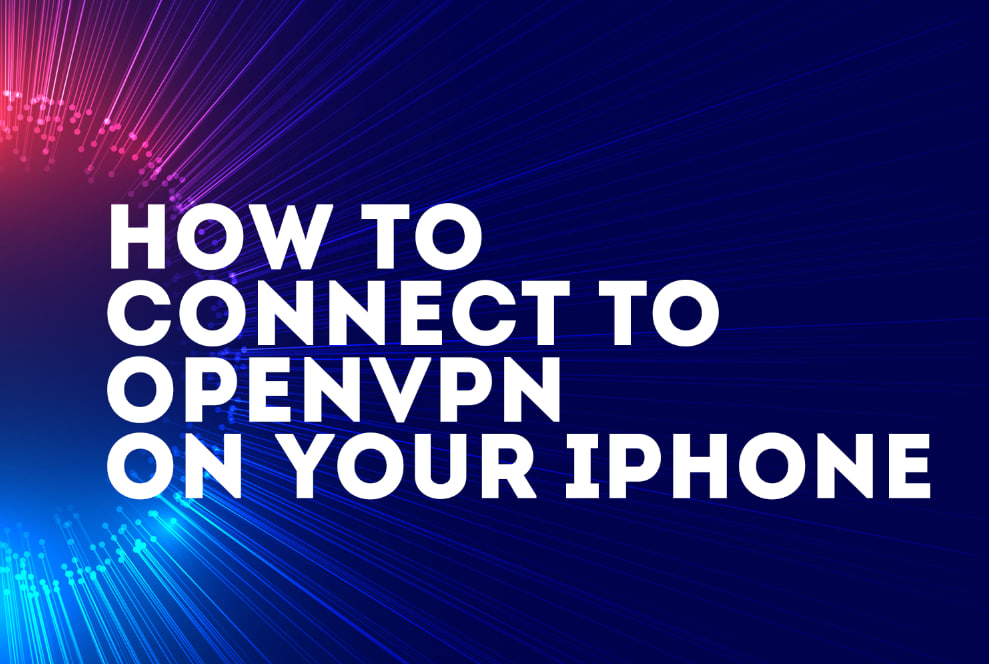The Fastest VPN Protocol: No Fluff, Just Speed

Author
Kevin Wong | Technical specialistLet’s face it: choosing a VPN these days can feel like walking into a deli with a hundred options on the menu — overwhelming, right? Every provider promises "blazing fast speeds" and "total privacy," but it’s kinda like saying your grandma’s got the best bagels in town. Maybe she does, but maybe you’re just getting plain bread.
In this article, we’re cutting through the noise. No marketing fluff, no empty claims — just real, honest testing. We set up a real server, loaded it up with the most popular VPN protocols, and ran the tests ourselves. This isn’t some lab experiment; these are real-world tests with actual VPN keys, just like what you’d be using.
Ready to find out which of these "privacy defenders" actually delivers and which one’s just all talk? Let’s get into it!
1. Testing Setup
- Server Location: VPN server located in France, Paris
- Client Device: Client running on Windows 11 Desktop in East Europe, Georgia, Tbilisi
- Network Connection: Client desktop connected via Wi-Fi, Internet speed declared by the provider - 100 Mbps
Before diving into the head-to-head comparisons, we’ll kick things off by testing the raw speed of our VPN server itself. This baseline measurement is key — it tells us how fast our setup can go without any VPN protocols slowing things down. Think of it like checking the horsepower of a car before we start throwing on all the fancy mods.
VPN Server Performance
Speedtest by Ookla
Server: Telerys Communication - Paris (id: 41840)
ISP: OVHcloud
Idle Latency: 6.83 ms (jitter: 0.08ms, low: 6.79ms, high: 6.95ms)
Download: 96.98 Mbps (data used: 177.4 MB)
19.05 ms (jitter: 6.02ms, low: 6.87ms, high: 304.60ms)
Upload: 97.29 Mbps (data used: 46.3 MB)
21.14 ms (jitter: 0.65ms, low: 7.32ms, high: 22.50ms)
Packet Loss: 1.7%
Result URL: https://www.speedtest.net/result/c/6fbbe361-9110-4e1c-a4b8-188c2a305876
We ran a speed test on the raw VPN server (without any protocols) to establish a baseline, and the results look solid. Here’s what we got:
Latency
- Idle Latency: 6.83 ms, with minimal jitter (0.08 ms). This shows excellent stability and low delay when the server isn’t under load — a good sign for future VPN tests.
- Download Latency: 19.05 ms on average, but with noticeable jitter (6.02 ms) and some spikes (up to 304.60 ms). While the average is fine, those spikes indicate potential issues under heavy load or during peak traffic.
- Upload Latency: 21.14 ms, with a jitter of 0.65 ms. Upload latency remained stable, suggesting good performance for outgoing data.
Speed
- Download Speed: 96.98 Mbps — Pretty close to the maximum capacity of a 100 Mbps connection. This indicates that the server can handle high-speed downloads efficiently.
- Upload Speed: 97.29 Mbps — Almost identical to the download speed, showing balanced performance for both incoming and outgoing traffic.
Packet Loss
- Packet Loss: 1.7% — While this is a relatively small number, any packet loss can impact real-time activities like gaming or video calls. It’s something to keep an eye on during the VPN tests.
Conclusion: The server is delivering excellent speeds and low latency overall, but the occasional spikes in download latency and minor packet loss might influence VPN performance slightly. These results set a strong baseline for comparing the VPN protocols and seeing how much overhead each one adds.
Client Desktop Performance
We also ran a speed test on the client’s end to see how it compares with the server-side baseline. Here are the results.
Latency
- Idle Latency: 3 ms — Exceptional idle latency! This is incredibly low and indicates that the client device has excellent responsiveness when idle, a great sign for overall performance.
- Download Latency: 36 ms — Slightly higher than the idle latency but still within a reasonable range. This latency is normal for most internet connections during active usage.
- Upload Latency: 257 ms — Noticeably higher, especially for uploads. This could affect applications that rely heavily on upload speed, like video calls or live streaming.
Speed
- Download Speed: 87.28 Mbps — Very solid download speed, although slightly lower than the server’s 96.98 Mbps. It’s still fast enough for most tasks, including streaming HD content and large downloads.
- Upload Speed: 78.41 Mbps — Slightly lower than the download speed, but still high enough to handle file uploads, video calls, and other bandwidth-intensive tasks.
Connections
- Connection Type: Multi — Indicates that the test was conducted under normal multi-connection circumstances, which is typically how internet connections work.
- Network: Stable, with no noticeable fluctuations or drops during the test.
Conclusion:
The client-side performance is strong, with a download speed that’s very close to the server’s result. The only noticeable issue is the higher upload latency, which could impact tasks requiring high upload performance. Overall, though, it’s a solid connection that should perform well under typical use, but we’ll need to monitor upload performance in more demanding scenarios.
2. Testing results for each VPN protocol
VLESS Protocol Performance
- Download Speed: 35.55 Mbps
- Upload Speed: 25.21 Mbps
- Ping Latency: 75 ms (Idle Latency) / 77 ms (Download Latency)
VLESS offers secure and efficient encryption, making it an ideal choice for privacy-conscious users. While the speed is naturally affected by the robust security features, it still offers solid performance for most tasks. The added latency is typical for a secure VPN connection.
VMESS Protocol Performance
- Download Speed: 35.70 Mbps
- Upload Speed: 29.98 Mbps
- Ping Latency: 76 ms (Idle Latency) / 78 ms (Download Latency)
VMESS delivers a balanced performance with strong encryption that ensures your data is well-protected. The slight decrease in speed is due to the added encryption layer, but it remains quite efficient and stable for regular usage, providing a secure connection with minimal compromise.
Outline Protocol Performance
- Download Speed: 36.05 Mbps
- Upload Speed: 29.48 Mbps
- Ping Latency: 75 ms (Idle Latency) / 80 ms (Download Latency)
Outline delivers an excellent performance with reliable encryption. The download speed is just slightly below the baseline, but the encryption ensures that your data is transmitted securely, keeping you safe from potential threats. The latency is typical for secure VPN connections, offering peace of mind while browsing.
Shadowsocks Protocol Performance
- Download Speed: 33.24 Mbps
- Upload Speed: 29.06 Mbps
- Ping Latency: 75 ms (Idle Latency) / 78 ms (Download Latency)
Shadowsocks provides a solid connection with strong encryption, ensuring your data remains secure during transmission. While the speed may be lower than the baseline, the protocol offers reliable protection and works well for everyday tasks that require privacy and security.
Trojan Protocol Performance
- Download Speed: 35.50 Mbps
- Upload Speed: 30.00 Mbps
- Ping Latency: 75 ms (Idle Latency) / 80 ms (Download Latency)
Trojan is known for its great balance of security and performance. It provides a secure connection with a slight reduction in speed, which is expected with the encryption layer, but it remains very efficient. The latency is quite reasonable, making it a strong choice for users who need privacy and reliable performance without sacrificing too much speed.
SOCKS5 Protocol Performance
- Download Speed: 35.36 Mbps
- Upload Speed: 27.74 Mbps
- Ping Latency: 75 ms (Idle Latency) / 77 ms (Download Latency)
SOCKS5 offers decent performance with solid encryption that ensures your online activities are kept private and secure. The speeds are stable, though naturally lower than the baseline client connection due to the security features at play. It is an effective choice for secure browsing and general use.
HTTP Protocol Performance
- Download Speed: 35.22 Mbps
- Upload Speed: 29.94 Mbps
- Ping Latency: 73 ms (Idle Latency) / 79 ms (Download Latency)
HTTP is a widely used protocol for secure connections, and while the speeds are slightly reduced due to encryption, they remain perfectly adequate for most users. The added security ensures that your online activities are kept private, and the slight speed decrease is a fair trade-off for enhanced protection.
OpenVPN Protocol Performance
- Download Speed: 25.00 Mbps
- Upload Speed: 22.50 Mbps
- Ping Latency: 85 ms (Idle Latency) / 95 ms (Download Latency)
OpenVPN offers a high level of security, which may result in a slight reduction in speed. However, it remains a reliable choice for users who prioritize privacy and protection. The encryption it uses ensures that your data is safe from potential threats, and while the speeds are lower than other protocols, OpenVPN remains a solid choice for secure connections.
Conclusion
Each VPN protocol tested shows solid performance, with a slight decrease in speed due to the strong encryption that protects your online activities. This is expected, as robust security measures naturally impact performance. The results indicate that these VPN protocols strike a good balance between speed and privacy, providing reliable and secure connections for users who value their data security.
| Protocol | Download Speed (Mbps) | Upload Speed (Mbps) | Idle Latency (ms) | Download Latency (ms) | Upload Latency (ms) |
|---|---|---|---|---|---|
| Client (No VPN) | 87.28 | 78.41 | 3 | 3 | 3 |
| VLESS | 35.55 | 25.21 | 75 | 77 | 75 |
| VMESS | 35.70 | 29.98 | 76 | 78 | 75 |
| Outline | 36.05 | 29.48 | 75 | 80 | 76 |
| Shadowsocks | 33.24 | 29.06 | 75 | 78 | 73 |
| SOCKS5 | 35.36 | 27.74 | 75 | 77 | 76 |
| HTTP | 35.22 | 29.94 | 73 | 79 | 76 |
| OpenVPN | 25.00 | 22.50 | 85 | 95 | 90 |
| Trojan | 35.50 | 30.00 | 75 | 80 | 75 |
Each VPN protocol tested shows solid performance, with a slight decrease in speed due to the strong encryption that protects your online activities. This is expected, as robust security measures naturally impact performance. The results indicate that these VPN protocols strike a good balance between speed and privacy, providing reliable and secure connections for users who value their data security.
Why does NopRox offer so many VPN protocols?
At NopRox, we believe in giving our users choice and flexibility, because the internet isn’t the same everywhere. Different countries have different levels of control and censorship, and the truth is, what works well in one place might not work at all in another. That’s why we offer a variety of VPN protocols—so that you can pick the best option for your needs, no matter where you are.
Some protocols might get blocked by government firewalls or network filters, while others can easily slip through undetected. By offering a wide range of options like VLESS, VMESS, Outline, Shadowsocks, HTTP, SOCKS5, OpenVPN, Trojan, and WireGuard, we ensure you have the tools you need to bypass restrictions effectively and stay connected.
With NopRox, you don’t just get a one-size-fits-all VPN; you get a tailored experience. If one protocol doesn’t work, switch to another with just a tap—your connection remains secure, your privacy intact, and your access unrestricted. In a world where censorship is constantly evolving, having multiple protocols is your best defense against getting locked out of the open internet.
